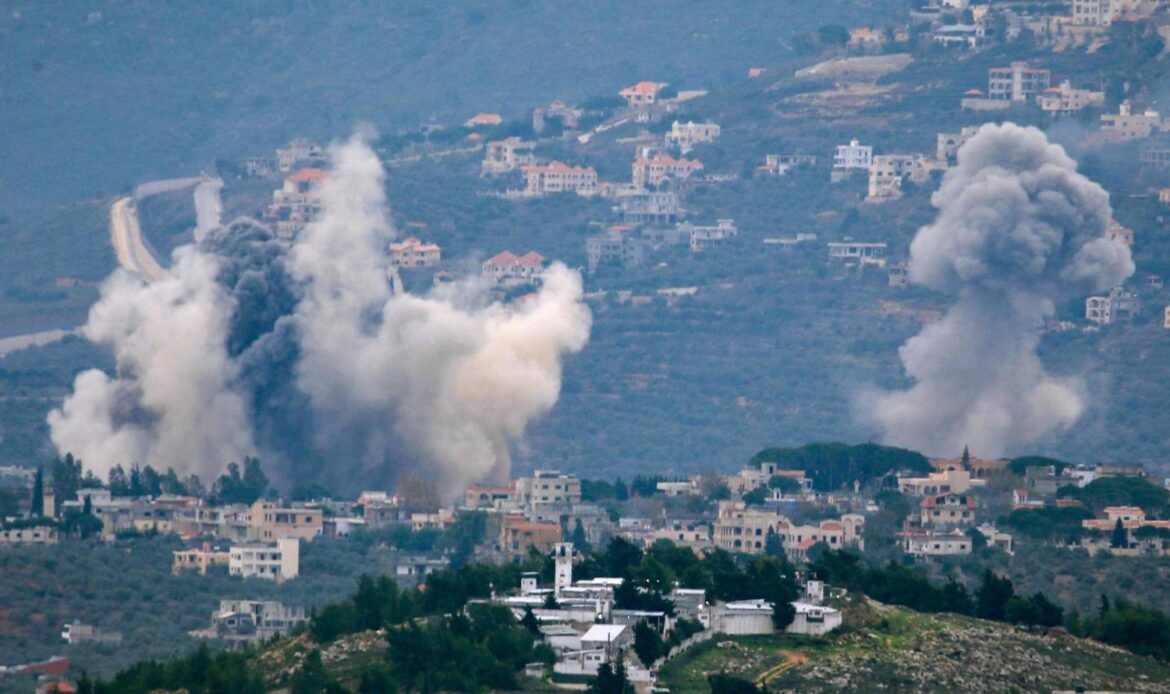Steven Sahiounie, journalist and political commentator
The Middle East sat on a razor’s edge on August 25, when Israel attacked the south of Lebanon with over 40 airstrikes, and minutes later the Lebanese resistance organization, Hezbollah, struck Israel with 340 missiles and tens of drones.
Israel claimed to have destroyed several thousands of missiles that were ready to be launched on Israel. This exaggerated claim by Israel was made to cover up the Israeli military failure to protect its residents of the north, who have suffered destroyed homes, lost incomes, and general chaos because of the faulty decisions of Israeli Prime Minister Benjamin Netanyahu, and his right-wing religious extremist cabinet ministers, Ithmar Ben-Gvir and Bezalel Smotrich.
The Israeli military is attempting to pull Hezbollah into a full-scale regional war, through the massive and continuous airstrikes across the south of Lebanon and into the Bekaa Valley. Only Netanyahu benefits from this plan so that he can remain in power and stay out of jail due to being found guilty of corruption. This is the same reason why Netanyahu has continued to refuse a ceasefire in Gaza, despite the massive losses of Israeli military personnel, equipment, and the economy.
Netanyahu has ignored the domestic pressure from the families of the Israeli hostages in Gaza, and international pressure to end the war in Gaza, which would end the Hezbollah attacks from Lebanon.
Hezbollah’s reply to the Israeli assassination of Foud Shukr, which was carried out by a targeted attack in Beirut on July 30, was calculated and bold. They chose targets specifically designed to prevent Netanyahu from igniting a regional war. Netanyahu was hoping Hezbollah would be so reckless as to hit strategic Israeli infrastructure and civilians, which would allow Netanyahu to be justified in a whole-scale attack on Beirut.
The targets of Hezbollah were military bases and not civilians.
The US had sent to the eastern Mediterranean numerous ships and military assets and had sent Amos Hochstein, a US special envoy, to Lebanon several times to threaten the Lebanese government and the resistance organizations.
Netanyahu knows he can’t fight a regional war alone, and he needs the US military to achieve the military victories he seeks. The US has continued its blind support of the Israeli war in Gaza, despite the UN and others calling it genocide.
Netanyahu cannot be stopped. His citizens, critics, the UN, humanitarian groups, and the US administration have all been unsuccessful in persuading Netanyahu to focus on a ceasefire and hostage release. The US is the only force that can stop Netanyahu, but they will not stop him because the US military complex is benefiting from the Gaza war, and keeping the region in chaos.
The US has sent more than 50,000 tons of weapons and ammunition to Israel since October 7, 2023. Over 500 cargo planes and over 107 ships have delivered the military supplies to keep Netanyahu at war in Gaza, which has pulled in Hezbollah and other allies of the resistance, who stand in solidarity with the Palestinian people living under military occupation in Gaza, the Occupied West Bank, and East Jerusalem.
Two possible scenarios could play out in the Middle East. Firstly, a regional war may break out with the axis of resistance united on one side, against Israel and the US on the opposing side. Secondly, the tension will continue in the region as it is currently until after the US election in November.
In my opinion, the US was attempting to end the war in Gaza until the day Biden decided to withdraw his re-election bid. Biden saw delivering a ceasefire in Gaza as a vote boost on Election Day. Netanyahu coordinated with AIPAC to reinforce Biden’s image as old and senile, which resulted in Biden pulling out of the race. Netanyahu is betting on VP Kamala Harris winning, after which she will continue the Netanyahu plan.
The Netanyahu plan is to annex Gaza, the occupied territories in the West Bank, and East Jerusalem. This action would close the book on the two-state solution, and keep the desire for freedom burning as a flame in the hearts of Palestinians, and everyone who rejects colonialism.
The two-state solution remains an internationally recognized solution to the 70 years of Middle Eastern conflict, and the only hope for the freedom of the Palestinian people.
Steven Sahiounie is a two-time award-winning journalist



